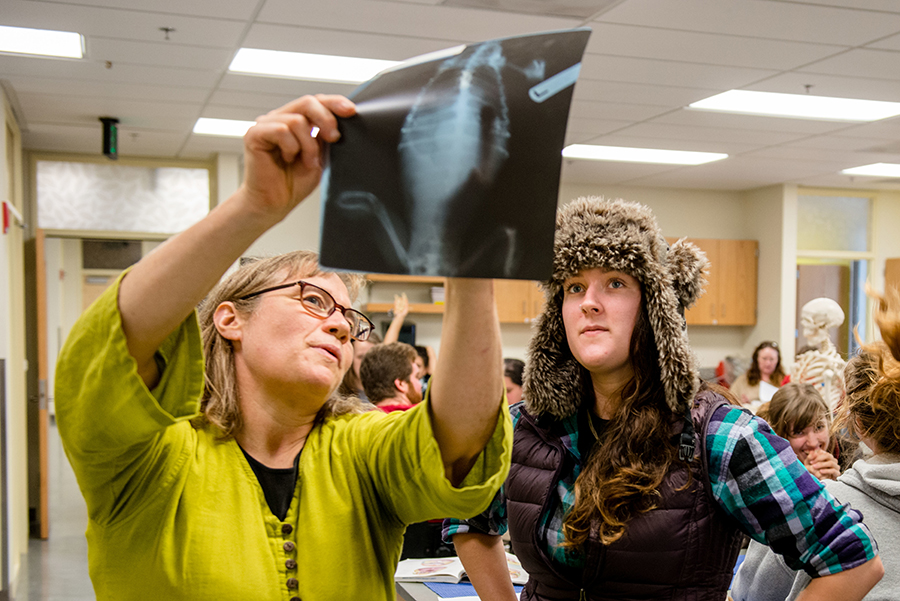About Biology
Biology and life sciences will prepare you for a career in medicine or the health professions, for a teaching career in secondary schools, or as a prerequisite for graduate study in science. As part of your liberal arts education, Evergreen’s mixture of interdisciplinary study and hands-on lab and field research will teach you how to apply scientific principles to solving real-world problems.
Studying science at Evergreen is a different experience than what science majors get at most universities. Here biology, chemistry, physics, and other disciplines are woven together, providing a unique interdisciplinary education. From high-tech labs to field studies, you’ll develop an appreciation of the levels of organization of life, their diversity, and how physical, chemical, and geological processes have shaped life on earth.
At Evergreen, you’ll immediately begin learning to use sophisticated scientific equipment to answer complex biological questions. Many yearlong science programs begin with foundational work and quickly transition to student research projects so that all students gain scientific skills.
You’ll also have opportunities to do scientific research as part of faculty research programs. Numerous students present their work at scientific meetings and have been authors on technical papers.
Join us in an education that doesn’t just change your life — it gives you the tools to change the world.
Check out related Courses and Programs in the Academic Catalog
Laboratories
Students of all levels have access to science labs with a full range of equipment, high-tech tools, and the best modern software available. Our students have unique opportunities to conduct scientific research using high-quality instruments, such as a scanning electron microscope and a nuclear magnetic resonance spectrometer.
Computer Applications Lab (CAL)
The CAL supports the campus community with computing technologies for scientific inquiry.
Explore Labs and Studios
Evergreen Ecological Observation Network (EEON)
EEON is a long-term research effort involving students and faculty conducting research in Evergreen’s 1,000-acre Puget Sound lowland second-growth rainforest. Their work is centered on 44 intensively studied long-term monitoring plots where they’re measuring biological diversity, development, carbon dynamics, and other characteristics.
Science Carnival and Research Exposition
The largest event of its kind in Washington, the Science Carnival offers hundreds of presentations from Evergreen science students with an emphasis on demonstration, hands-on participation and fun, plus a volcano! More than 1,000 elementary, high school and college students and community members crowd Red Square and the science labs to learn and get excited about science. Topics include chemistry, computer science, biology, food science, health, physics, optics, geology, marine science, and a wide range of other disciplines.
